- Home
- Linda Lael Miller
Parable, Montana [4] Big Sky Summer Page 3
Parable, Montana [4] Big Sky Summer Read online
Page 3
He swallowed hard as he left the truck behind, heading for the house. He’d raised Willie and Nelson from pups, and Brylee had been urging him to replace them, but he wasn’t ready for that. For the time being, he’d rather share his sister’s dog, though Snidely went everywhere with his mistress, which meant he wasn’t around home much.
Walker let himself in through the side door, which opened into the spacious, old-fashioned kitchen, his suit jacket slung over one shoulder, and was heartened to find Brylee there. Blue-jeaned and wearing a T-shirt with the motto Men Suck on the front, her heavy brown hair pulled back in a ponytail, she was splotched with flour from head to foot.
Snidely kept watch nearby, curled up on a hooked rug.
“Hey,” Walker said, addressing both of them, draping his jacket over the back of a chair.
Snidely lifted his head, sighed and rested his muzzle on his forelegs again.
“Hey,” Brylee said, careful not to look at Walker. She’d been baking bread, probably for hours. The air was scented with that homey aroma, and pans full of rising, butter-glistened dough waited, assembly-line fashion, on the counter nearest the stove. “How was the wedding?”
Walker wanted a beer and a quiet chat with his sister, but he had to get out of his suit and head for the barn and stock pens, to make sure the chores had all been done. With six ranch hands working the place year-round, though, the task was more habit than necessity. “It was a wedding,” he said, pausing. He wasn’t being flippant; the church variety was always pretty much the same, that’s all—white dress and veil for the bride, nervous groom, preacher, organ music, crowded pews, tons of flowers.
Every line of Brylee’s slender body looked rigid as she absorbed his reply, and she kept her back to him. Whenever somebody got married, she folded in on herself like this, keeping frenetically busy and pretending it didn’t matter.
“So it went off without a hitch, then?” she asked, her tone so falsely airy that a crack zigzagged its way down the middle of Walker’s big-brother heart. Brylee wouldn’t have wished what had happened at her wedding on anybody, but she always asked that same question after every new ceremony and she always seemed to be braced for the worst.
“I’d say it was perfect,” Walker answered gently. He’d retrieved his jacket from the chair back, but beyond that, he hadn’t moved. His feet seemed to be stuck to the kitchen floor.
Brylee looked back over one flour-coated shoulder, offered a wobbly smile that didn’t quite stick to her wide mouth. “That’s good,” she said, blinking once and then turning to the dough she was kneading.
“What’s with all the bread?” Walker asked.
“Opal Dennison and some of the other ladies from her church are holding a bake sale tomorrow, after the second service,” she replied with brave good cheer, though her shoulders slumped slightly and she was careful to keep her face averted. “To raise more money for the McCulloughs.”
Young Dawson McCullough, seriously injured in a fall from the now-demolished water tower in town, had worked on the ranch since he was big enough to buck hay bales and muck out stalls, after school and during the summer, and he was practically a member of the family.
“And you’re the only woman in the whole county who signed up to bake bread?” Walker asked lightly.
Brylee stopped, stiff along her spine again and across her shoulders. She kept her head up, but it looked like an effort. “Don’t, Walker,” she said softly. “I know what you’re trying to do, and I appreciate the thought, but, please—don’t.”
Walker sighed, shoved a hand through his hair. He opened his mouth, thought better of saying more and closed it again, went on through the kitchen, along the corridor, past the dining and living rooms, and into his spacious first-floor bedroom, where he peeled off the suit and kicked off the dress shoes and put on worn jeans, a lightweight flannel shirt and boots.
The relief of being himself again was enormous.
Brylee was lining up what looked like the last of the doughy loaves on the oven racks when Walker came back through, on his way to the door. She didn’t acknowledge him, but Snidely got to his feet and lumbered along after him, outside, across that wing of the porch that wrapped around the house on three sides, down the steps.
“Women,” Walker told the dog in an exasperated undertone. “Brylee could have her pick of men and what does she do? She pines after the one that got away.”
Tongue lolling, Snidely wagged his tail as he ambled companionably alongside.
Walker was glad to have the company. “The worst part is,” he went on, relieved that nobody on two legs could hear him prattling away to a German shepherd, “she’s just being cussed, that’s all. Deep down—but not all that deep down—Brylee knows damn well that she and Hutch weren’t right for each other. By now, the honeymoon wouldn’t just be over, they’d have crashed and burned.”
Snidely offered no insight, but, in that way of faithful dogs, his mere presence was soothing. He paused to lift one hind leg against a pillar of the hitching post, then trotted to catch up with Walker at the barn door.
Walker flipped on the lights lining the long breezeway and stepped inside, pausing to check on each horse in each stall, making sure the electronic watering system was working and there was hay in every feeder.
Mack, his big buckskin gelding, occupied the largest stall, the one across from the tack room, and he nickered a greeting when Walker stopped to offer a quiet howdy. All the horses, Mack included, had been properly looked after, but Walker had had to see that with his own eyes if he expected to get any sleep. Same with the bulls and the broncos, some in the pastures and some in the holding pens behind the barn.
He sighed again, rubbed the back of his neck, still itchy from the starch in the collar of the dress shirt he’d worn earlier, and adjusted his hat, even though it didn’t need adjusting. With his head full of Casey Elder and the two children they should have been raising together, he’d probably toss and turn the whole night and wake up cranky as an old bear with a nettle between its toes.
Snidely, standing close, thumped the back of Walker’s right knee with his swinging tail, as if to remind him of the here and now.
Walker chuckled and leaned down to ruffle the dog’s ears, and then the two of them went on to check on the bulls snorting and pawing the ground in their steel-girded pens, the broncos grazing in the nearby pasture. Across the Big Sky River, the lights of the ranch hands’ cabins and trailers winked in the shadows of early evening, casting dancing reflections on the water. Voices drifted over—children playing outside, determined to wring the last moment of fun from a dying day, mothers calling them inside for baths and bedtime, men smoking in their yards while they swapped tall tales and laughed at each other’s jokes.
The sounds were ordinary, but they lodged in Walker’s chest like slivers that night. He tilted back his head, looked up at a sky popping with stars and wondered how a man could live square in the middle of a busy ranch like Timber Creek and still feel as though he’d been exiled to some faraway planet with a population of one.
Snidely lingered, but it was plain that he wanted to head back toward to the house and Brylee, and Walker figured the dog had it right. God knew, standing out here by the river, listening in on all those family sounds, wasn’t doing him any good.
“Let’s go,” he told Snidely, and started back.
By the time they reached the house, Brylee had the kitchen cleaned up, about two dozen loaves of bread wrapped up in foil and ready for tomorrow’s bake sale, and was actually sitting down at the table, sipping from a cup of tea while she waited for the stove timer to ring so she could take out the last batch.
She’d pulled herself together while Walker was out, and he was grateful, because he never knew how to comfort her when she got into one of these jilted-bride moods.
“I kept back a few loaves for you,” she told her brother, smiling a genuine Brylee smile when Snidely walked over and laid his chin on her lap so she could stroke his l
ong, gleaming back. “One in the breadbox, two in the freezer.”
“Thanks,” Walker said, hanging his hat on its peg next to the door and proceeding to the sink to roll up his sleeves and wash his hands the way he always did when he’d been outside. He remembered their father doing the same thing in the same way, and their granddad, too. There was a certain reassurance in that kind of quiet continuity.
“I guess you must have seen Casey and the kids today,” Brylee said easily.
“I saw them,” Walker said.
“And?”
“And what?” Walker grabbed a dish towel and dried his hands, his motions brisk.
Brylee chuckled. “Whoa,” she exclaimed. “Touchy.”
“You’re a fine one to talk about being touchy,” Walker pointed out, frowning at her.
Brylee held up both hands, palms out. “Okay, fair enough,” she conceded. “It’s just that I’m allergic to white lace and promises.” Her hazel eyes, set wide above high cheekbones, twinkled, and she reached back to free her hair from the rubber band that had held it in place, shaking her head a couple of times so her curls flew around her face. Before the wedding-that-wasn’t, Brylee’s hair had tumbled past her waist, but she’d had it cut to shoulder-length afterward, which was better, Walker supposed, than getting a tattoo or having something pierced.
“You might want to get over that,” Walker remarked, walking over to the fridge, opening the door and taking out a can of cold beer.
“Are you going to make a speech?” The question was mildly put, but it had an edge to it nevertheless. Brylee narrowed her eyes, her cheeks flushed from an afternoon spent baking bread in a hot kitchen. “Because you’re the last person on earth, Walker Parrish, who has room to lecture anybody about their love life.”
He hooked one foot around the leg of a chair at the table, scraped it back and sat, plunking his can of beer down on the red-and-white-checked cloth and regarding her steadily. “Who said I was fixing to give a lecture?” he asked coolly.
Brylee flashed him one of her wide, toothy grins. The woman was a walking advertisement for orthodontia now, but as a kid, her pearly whites had gone every which way but straight down. “It isn’t as if we don’t have this conversation every time there’s a wedding anywhere in Parable County.”
“What conversation?” Walker took a long, thoughtful draft of his beer. “You said you were allergic to white lace and promises, and I said you might want to think about getting over that. Where I come from, that doesn’t qualify as a conversation.”
Brylee rolled her eyes. For somebody who’d probably been down in the mouth all day, she’d certainly perked up all of a sudden. “I come from the same place you do,” she reminded him. “Right here on this ranch.”
“Is this discussion going anywhere?” Walker asked, suddenly realizing he was hungry. The only food he’d had since lunch, after all, was a slice of white cake, a few pastel mints and a handful of those tiny sandwiches held together by frilly toothpicks.
She reached out then, rested her hand briefly on his forearm and then withdrew it. “I know you worry about me, Walker,” Brylee said softly. “But I’ll be all right. I really will.”
“When?” Walker wanted to know.
“Things take time,” she hedged, making her big brother wish he’d left well enough alone and talked about things like the price of beef or the weather or, better yet, nothing at all.
“How much time?” he asked, because they were already knee-deep in the subject and wishing he’d kept his mouth shut in the first place wouldn’t help now. “It’s been a couple of years since you and Hutch parted ways and, far as I know, you haven’t so much as looked at another guy since then, let alone dated.”
Brylee propped one elbow on the table and rested her chin in her palm, regarding him with a sort of tender amusement. “I’m running a business, Walker—a successful business, in case you haven’t noticed—and that keeps me pretty busy.”
“Too busy, if you ask me,” Walker grumbled.
“I didn’t ask you,” Brylee reminded him sweetly. Her brow furrowed in a slight frown, quickly gone, and another twinkle sparked in her eyes. “Are you afraid I’ll wind up an old maid, and you’ll be stuck with me for good?”
An image of Brylee sitting on the front porch in a rocking chair, her hair gray and pinned back in a bun, wearing a church-lady dress and knitting socks, flashed into Walker’s mind and made his mouth twitch upward at one corner. “Heck, no,” he teased. “I’d just park you in some nursing home and get on with my life.”
Brylee didn’t laugh, or even smile. Her expression was sad, and she gazed off into some unseeable distance. “What if we do end up all alone when we’re old?” she murmured. “It happens.”
“I reckon I’ll wait a decade or two before I start worrying about that,” he said. There had to be things he could say that would encourage Brylee, get her off the sidelines and back into the rough-and-tumble of life, but he was damned if he knew what those things were.
Like quicksilver, Brylee’s mood changed again. The timer on the stove made a chiming sound, and she pushed her chair back to stand, dislodging Snidely’s big dog head from her thigh. All hustle and bustle, she picked up a couple of pot holders and started taking tinfoil loaf pans out of the oven and setting them on the waiting cooling racks. “You’re right,” she said, as though there had been no lag in their verbal exchange. “Let’s wait twenty years and figure it out then.”
Remembering that he was hungry, Walker stood, went to the breadbox on the counter, a retro thing coated in green enamel, took out a loaf and set it on the counter while he rummaged through a nearby drawer for a knife. “It’s a deal,” he agreed, proceeding to open and close cupboard doors until he found a jar of peanut butter and one of those little plastic bears with honey inside. The bottle was sticky and the cap was missing, and honey went everywhere when he squeezed too hard.
“Honestly,” Brylee scolded, elbowing him aside, constructing the sandwich and shoving it at him, then wiping up the mess with a damp sponge.
Walker grinned at her efficiency. “You were born to pack lunches for a bunch of little kids,” he observed.
“Gee,” Brylee said, “thanks.”
“I only meant—”
“I know what you meant, Walker,” she broke in crisply.
He bit into the sandwich, chewed, swallowed. “Well, excuse me,” he said, pretending to be wounded.
“Shut up and go to bed,” Brylee told him.
“I’ll do that,” Walker replied, thinking that they must have slipped into a time warp and been transported back to their teens, when they couldn’t be in the same room without needling each other.
She made a disgusted sound and thumped the tops of a few loaves with one knuckle. She’d be up for a while, waiting for the last batch of bread to cool off so she could wrap it.
Walker saluted her with a lift of his sandwich and headed for his room, shaking his head as he went. He wondered when he was going to learn. Ninety-five percent of the time, reasoning with a woman, especially when that woman happened to be his kid sister, was a waste of breath.
*
IT WAS ALMOST MIDNIGHT when the last guests took their leave and the carousel finally stopped turning.
Surveying her backyard, empty except for the caterer’s helpers and the guys taking down the big canopy and dismantling the dance floor, Casey was reminded of her childhood and the feeling she got when the carnival moved on after its yearly visit, leaving a bare and somewhat forlorn patch of ground behind.
“Mom?” Clare stood at her elbow, barefoot but still in her party dress. She was already taller than Casey, and so was her brother, and she had the elegant carriage of a young woman. “You okay?”
Casey turned her head, smiled at her daughter, thinking that if she loved her kids even a smidgeon more, she’d burst. “I’m fine, sweetheart,” she said. “Just a little tired.” She paused, enjoying the night air and the sky full of stars and the bittersweet
remnants of a happy day. “Speaking of which—shouldn’t you be in bed by now?”
Named for Casey’s late grandmother, Clare resembled the woman more with every passing year. Now she made a face. “Mom,” she said, “I’m almost fifteen and, anyway, it’s Saturday, so I can sleep in tomorrow.”
“We’re going to church,” Casey reminded the woman-child. “There’s a bake sale after the eleven o’clock service, and I promised Opal I’d help out. And you won’t be fifteen for another eight months.”
With a dramatic sigh, Clare turned and started across the darkened sunporch, toward the kitchen, and Casey followed with some reluctance, turning her back on that big sky full of stars.
“Well,” the girl argued, since teenagers couldn’t go more than ten minutes, it seemed to Casey, without offering up some kind of back talk, “you didn’t promise Opal that I’d help, did you?”
Shane stood at one of the sleek granite-covered counters in that gleaming, cavernous kitchen, eating leftover wedding cake with his fingers. He gave Casey a look of good-natured guilt, shrugged once and reached for another slice.
“You’re disgusting,” Clare informed him.
Shane stuck out a crumb-covered tongue and made a rude noise.
“Yuck,” Clare wailed, drawing the term out to three times its normal length. “Mother, are you just going to stand there and let him act like a baboon?”
Casey pretended to consider the question. “Yeah,” she said finally, with a little grin. “I guess I am.”
Shane laughed in obnoxious triumph, snorting more crumbs. The three dogs, clustered around him, waited eagerly for scraps.
Clare made a strangled, screamlike sound of truly theatrical proportions and stomped off toward the rear stairway, bound for the sanctuary of her upstairs bedroom, a private preserve where Shane was not allowed.
“That’s enough cake,” Casey told her son. “Have the dogs been outside?”

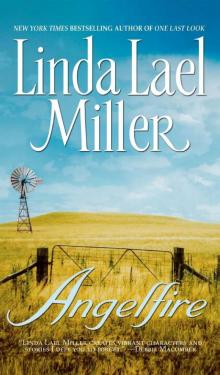 Angelfire
Angelfire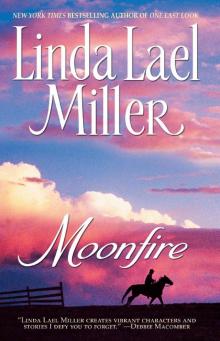 Moonfire
Moonfire The Yankee Widow
The Yankee Widow The Cowboy Way
The Cowboy Way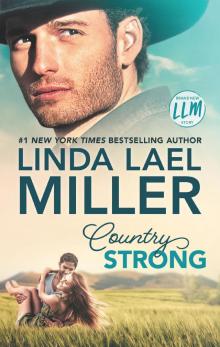 Country Strong--A Novel
Country Strong--A Novel Forever and a Day
Forever and a Day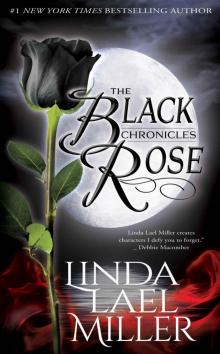 The Black Rose Chronicles
The Black Rose Chronicles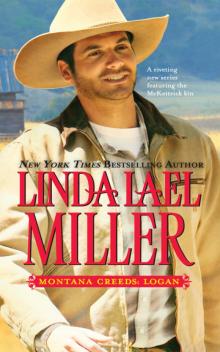 Montana Creeds: Logan
Montana Creeds: Logan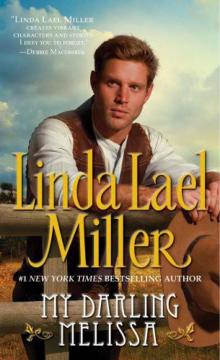 My Darling Melissa
My Darling Melissa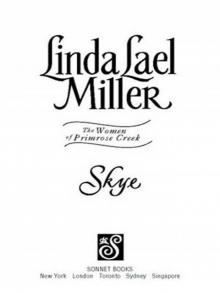 Skye
Skye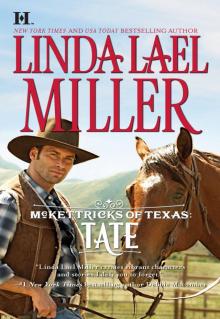 McKettricks of Texas: Tate
McKettricks of Texas: Tate Springwater Seasons
Springwater Seasons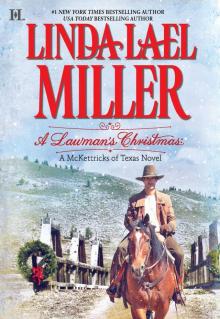 A Lawman's Christmas
A Lawman's Christmas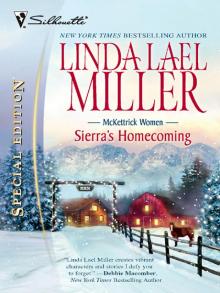 Sierra's Homecoming
Sierra's Homecoming![Parable, Montana [4] Big Sky Summer Read online](http://i1.bookreadfree.com/i/03/22/parable_montana_4_big_sky_summer_preview.jpg) Parable, Montana [4] Big Sky Summer
Parable, Montana [4] Big Sky Summer One Last Weekend
One Last Weekend A Stone Creek Collection, Volume 2
A Stone Creek Collection, Volume 2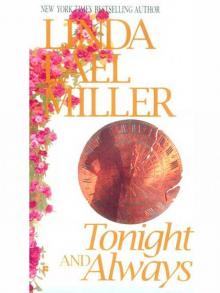 Tonight and Always
Tonight and Always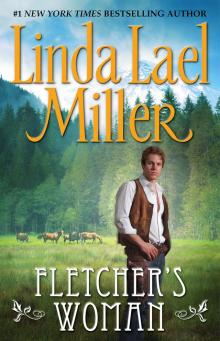 Fletcher's Woman
Fletcher's Woman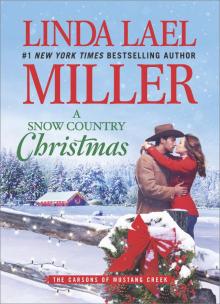 A Snow Country Christmas
A Snow Country Christmas The Last Chance Cafe
The Last Chance Cafe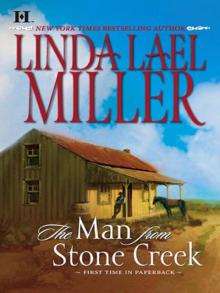 The Man from Stone Creek
The Man from Stone Creek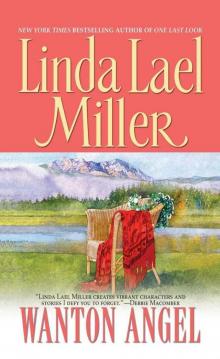 Wanton Angel
Wanton Angel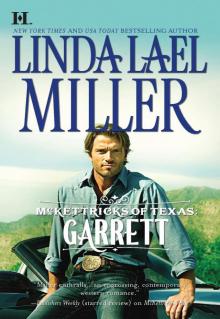 McKettricks of Texas: Garrett
McKettricks of Texas: Garrett Memory's Embrace
Memory's Embrace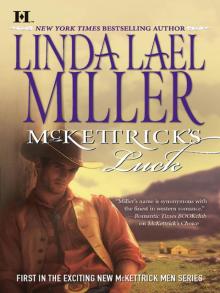 McKettrick's Luck
McKettrick's Luck Pirates
Pirates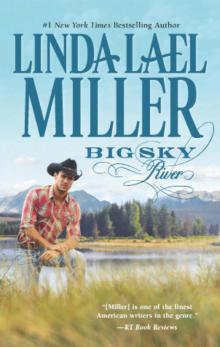 Big Sky River
Big Sky River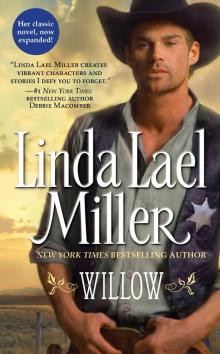 Willow: A Novel (No Series)
Willow: A Novel (No Series)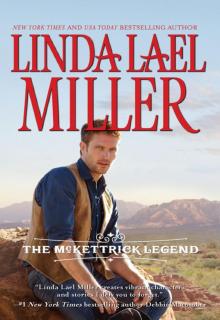 The McKettrick Legend: Sierra's HomecomingThe McKettrick Way (Hqn)
The McKettrick Legend: Sierra's HomecomingThe McKettrick Way (Hqn)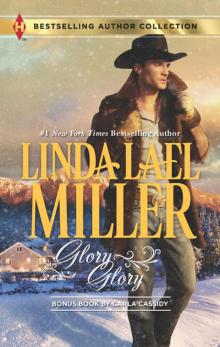 Glory, Glory: Snowbound with the Bodyguard
Glory, Glory: Snowbound with the Bodyguard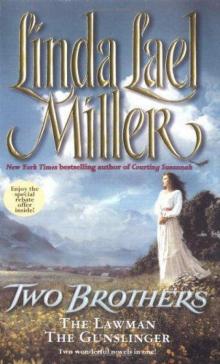 Two Brothers
Two Brothers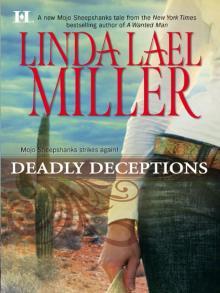 Deadly Deceptions
Deadly Deceptions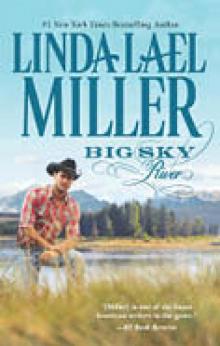 Big Sky Secrets
Big Sky Secrets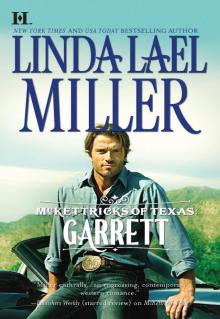 Garrett
Garrett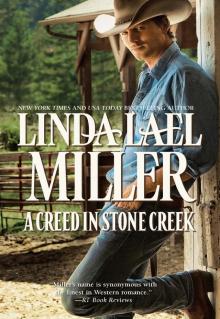 A Creed in Stone Creek
A Creed in Stone Creek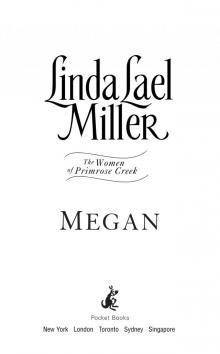 Megan
Megan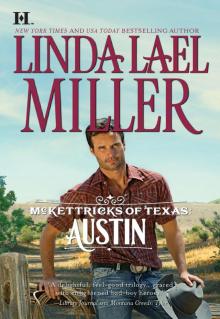 McKettricks of Texas: Austin
McKettricks of Texas: Austin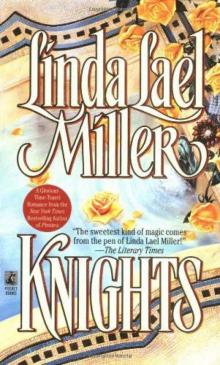 Knights
Knights High Country Bride
High Country Bride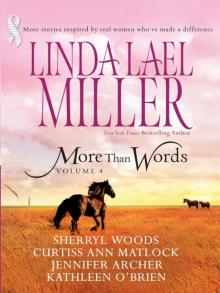 More Than Words Volume 4
More Than Words Volume 4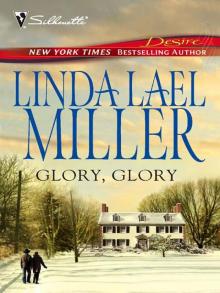 Glory, Glory
Glory, Glory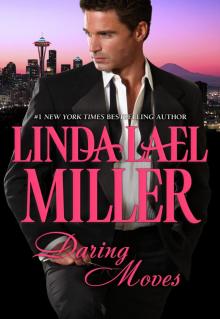 Daring Moves
Daring Moves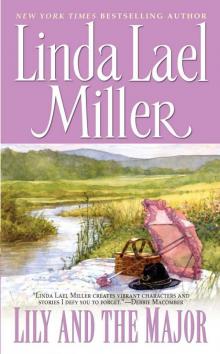 Lily and the Major
Lily and the Major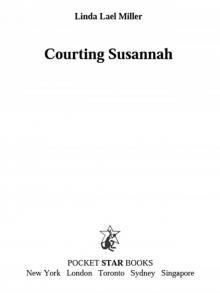 Courting Susannah
Courting Susannah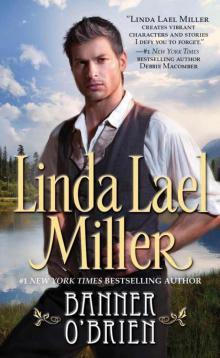 Banner O'Brien
Banner O'Brien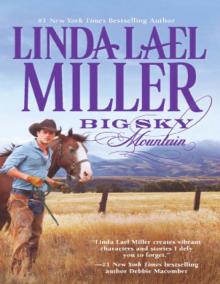 Big Sky Mountain
Big Sky Mountain Linda Lael Miller Bundle
Linda Lael Miller Bundle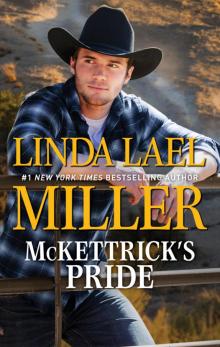 McKettrick's Pride
McKettrick's Pride A Stone Creek Collection Volume 1
A Stone Creek Collection Volume 1 A Wanted Man
A Wanted Man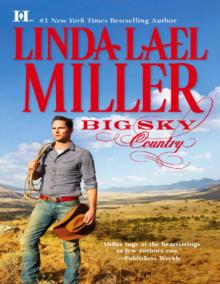 Big Sky Country
Big Sky Country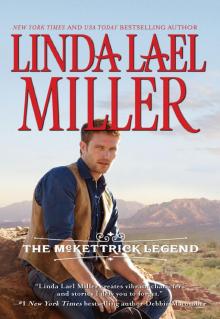 The McKettrick Legend
The McKettrick Legend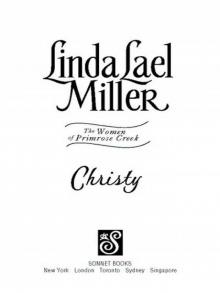 Christy
Christy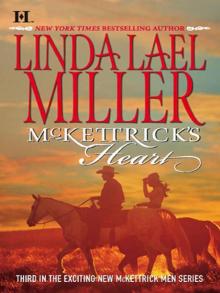 McKettrick's Heart
McKettrick's Heart Resurrection
Resurrection Arizona Heat
Arizona Heat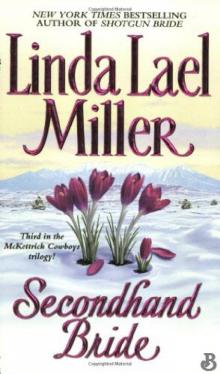 Secondhand Bride
Secondhand Bride Snowflakes on the Sea
Snowflakes on the Sea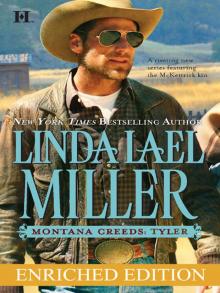 Montana Creeds: Tyler
Montana Creeds: Tyler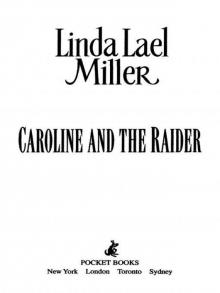 CAROLINE AND THE RAIDER
CAROLINE AND THE RAIDER A Proposal for Christmas: State SecretsThe Five Days of Christmas
A Proposal for Christmas: State SecretsThe Five Days of Christmas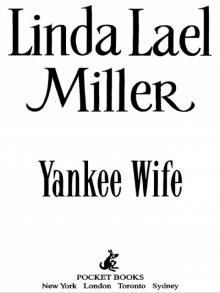 Yankee Wife
Yankee Wife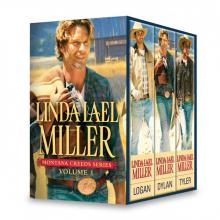 Linda Lael Miller Montana Creeds Series Volume 1: Montana Creeds: LoganMontana Creeds: DylanMontana Creeds: Tyler
Linda Lael Miller Montana Creeds Series Volume 1: Montana Creeds: LoganMontana Creeds: DylanMontana Creeds: Tyler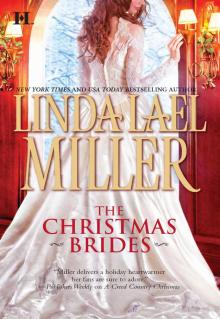 The Christmas Brides
The Christmas Brides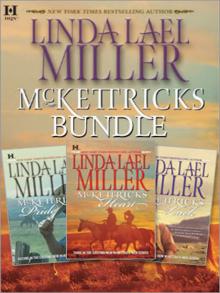 McKettricks Bundle
McKettricks Bundle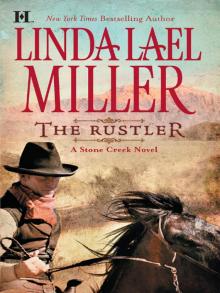 The Rustler
The Rustler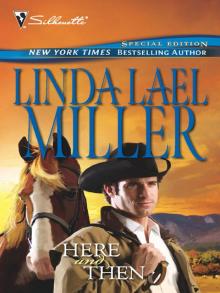 Here and Then
Here and Then Only Forever
Only Forever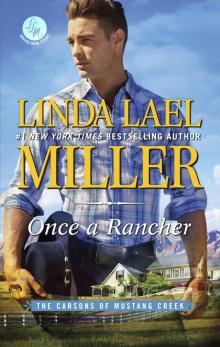 Once a Rancher
Once a Rancher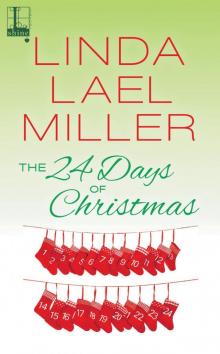 The 24 Days of Christmas
The 24 Days of Christmas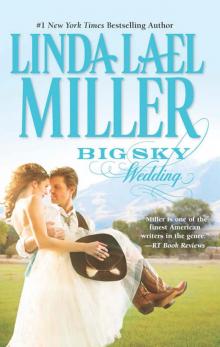 Big Sky Wedding
Big Sky Wedding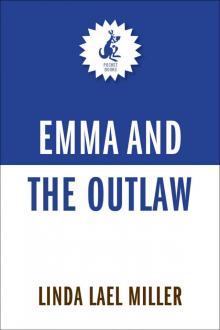 Emma and the Outlaw
Emma and the Outlaw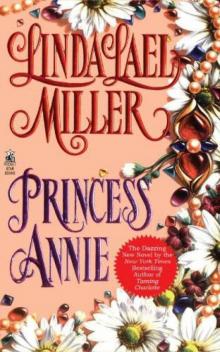 Princess Annie
Princess Annie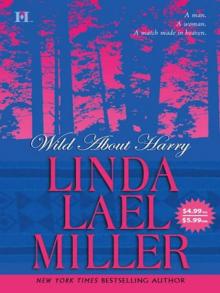 Wild About Harry
Wild About Harry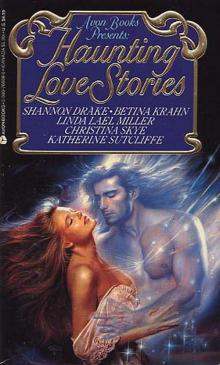 That Other Katherine
That Other Katherine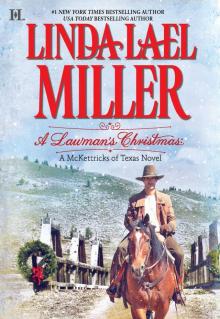 A Lawman's Christmas: A McKettricks of Texas Novel
A Lawman's Christmas: A McKettricks of Texas Novel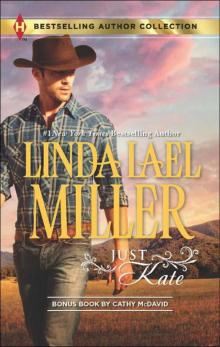 Just Kate: His Only Wife (Bestselling Author Collection)
Just Kate: His Only Wife (Bestselling Author Collection)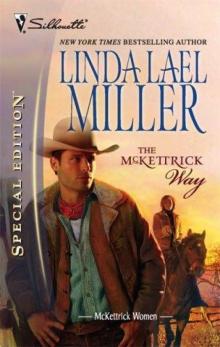 The McKettrick Way
The McKettrick Way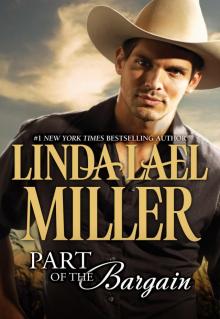 Part of the Bargain
Part of the Bargain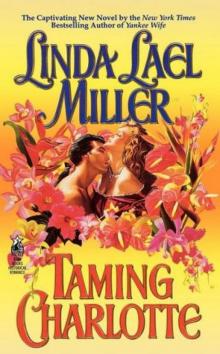 Taming Charlotte
Taming Charlotte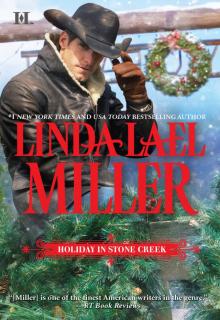 Holiday in Stone Creek
Holiday in Stone Creek One Last Look
One Last Look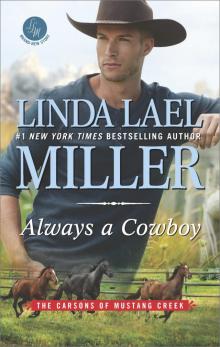 Always a Cowboy
Always a Cowboy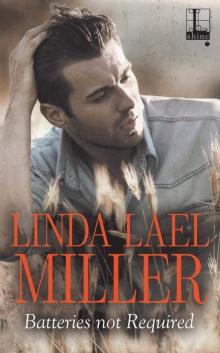 Batteries Not Required
Batteries Not Required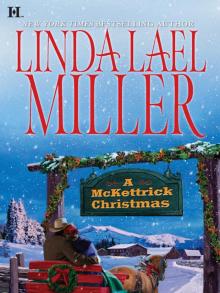 A McKettrick Christmas
A McKettrick Christmas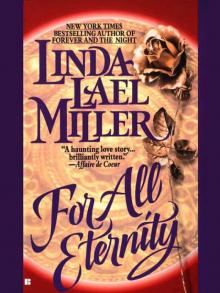 For All Eternity
For All Eternity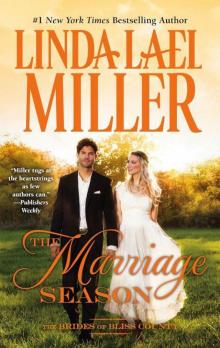 The Marriage Season
The Marriage Season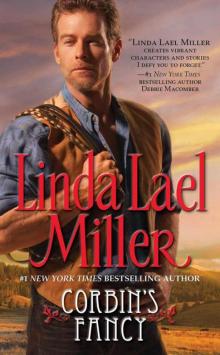 Corbin's Fancy
Corbin's Fancy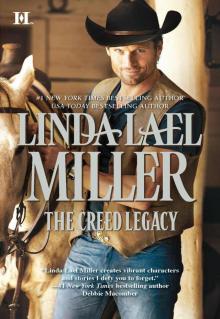 The Creed Legacy
The Creed Legacy Springwater Wedding
Springwater Wedding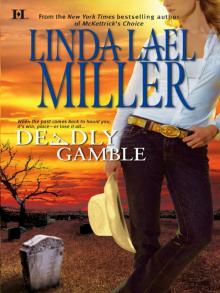 Deadly Gamble
Deadly Gamble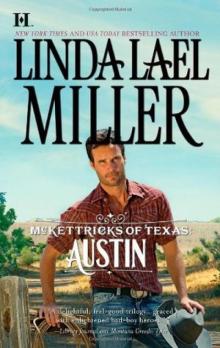 Austin
Austin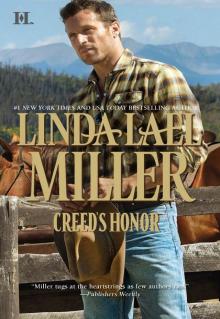 Creed's Honor
Creed's Honor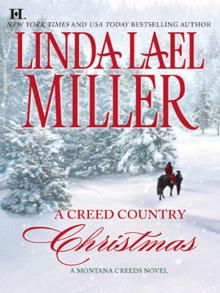 A Creed Country Christmas
A Creed Country Christmas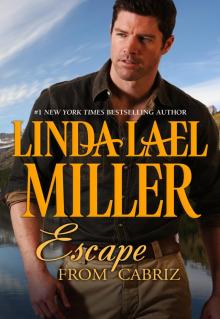 Escape from Cabriz
Escape from Cabriz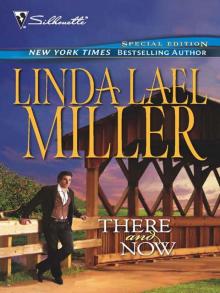 There and Now
There and Now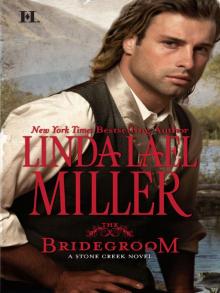 The Bridegroom
The Bridegroom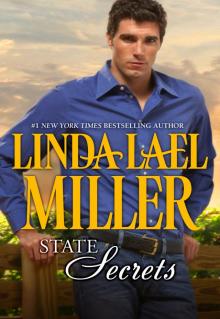 State Secrets
State Secrets Bridget
Bridget